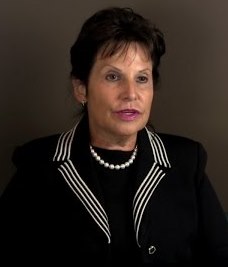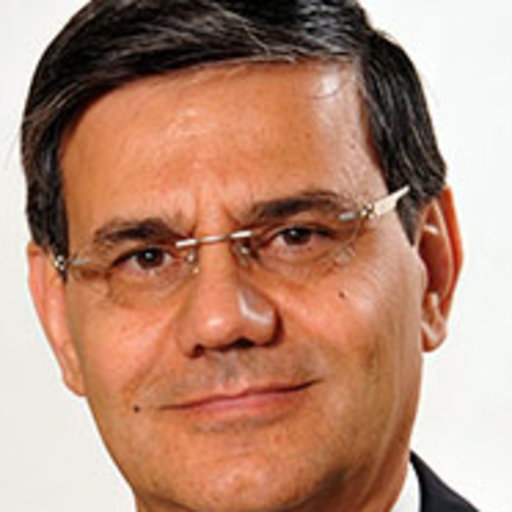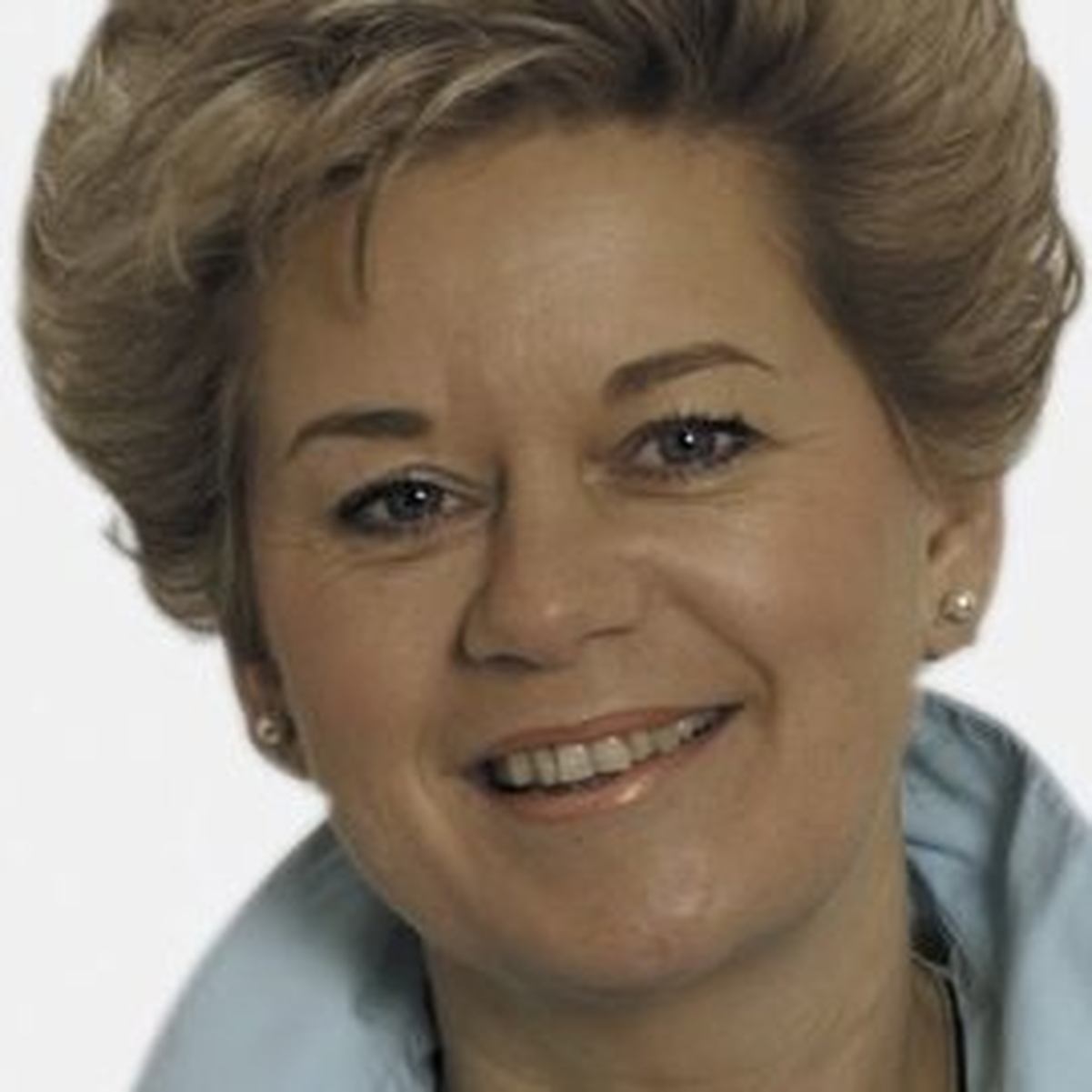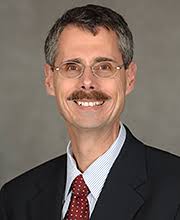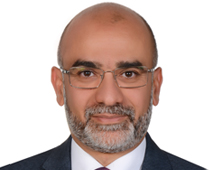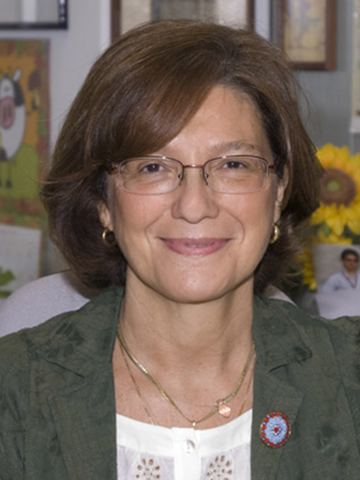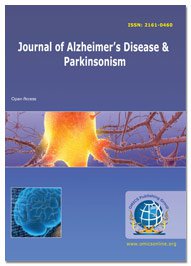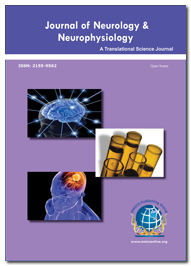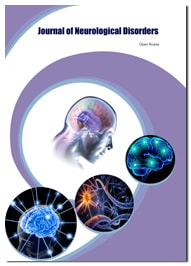Theme: Exploring the Challenges Concerning Excellence in Dementia Research and Care
Vascular-Dementia-2020
Dear Colleagues,
It is our pride and privilege to solicit participants from everywhere in the world to enrol within the 12th International Conference on Vascular dementia an excellent way to be held in June 22-23, 2020 as an Online meeting/Webinar. The subject matter of this convention Exploring the Challenges Concerning Excellence in Dementia Research and Care Meet the global stirring professionals and speakers at our Vascular Dementia Conference 2020 to speak approximately on new advances within the subject of technological know-how and engineering to improve health and remedy and similar innovations.
Attending dementia conference which is the global ones, offers you the risk to pay attention to distinct factors of view and analyse new ideas and developments in your concern. In addition, they offer you a brand new approach, new sorts of system, actualities, and investigators that you may now not have heard of.
We hope Vascular Dementia Conference 2020 will be permitting you to learn many new facts and techniques from hearing other’s displays, also you may converse with different academics from distinct universities, institutes and international locations you could have only heard or examine about. Also, presenting you with the possibility to fulfil and interact with scientists and researchers all over the world.
Furthermore, we are hoping you all will join and take a touch time to share your revel in the direction Vascular Dementia Conference 2020 additionally we're looking forward to welcoming you all to Online meeting/Webinar.
-
Speaker Presentations
-
Poster Display
-
Symposium hosting (4-5 members/team)
-
Workshop organizing
-
Association Partnering
-
Collaboration Proposals
-
Academic Partnering
-
Group Participation
-
Poster Competition (Winner will get Best Poster Award)
-
Young Researcher Forum (YRF Award to the best presenter)
-
Student Attendee
-
Group Registrations
-
Speaker Presentations
-
Symposium hosting
-
Book Launch event
-
Networking opportunities
-
Audience participation
-
Exhibitor and Vendor Booths
-
Sponsorships opportunities
-
Product launch Workshop organizing
-
Scientific Partnering
-
Marketing and Networking with clients
-
Best Poster Award
-
Outstanding Young Researcher Award
-
Group Registration benefits
-
Keynote sessions by the world’s most eminent researchers
-
Top Industries Representations
-
Directors/Managers/CEO’s
-
Presidents & Vice Presidents Medical Colleges
-
Research faculty
-
Academic Scientists
-
Students
-
Diagnostic laboratory professionals
-
Business Entrepreneurs
-
Neurologists
-
Neurosurgeons
-
Neurology doctors
-
Scientists and professors
-
Neuro research scholars
-
Industry professionals
-
Brand Manufacturers/ Marketers of Consumer Products
Track 1: Dementia
Dementia is not a specific disease. It's an overall term that describes a wide range of symptoms associated with a decline in memory or other thinking skills severe enough to reduce a person's ability to perform everyday activities. Alzheimer's disease. Vascular dementia, which occurs after a stroke, is the second most common dementia type. But there are many other conditions that can cause symptoms of dementia, including some that are reversible, such as thyroid problems and vitamin deficiencies. Dementia is a syndrome that involves severe loss of cognitive abilities as a result of disease or injury. Dementia caused by traumatic brain injury is often static, whereas dementia caused by neurodegenerative disorders, such as Alzheimer's disease
- Primary mental health care and nursing
- Novel therapeutics technology
- Novel therapeutics strategies for Dementia
- Mixed dementia
- Frontotemporal dementia
- Neurogenesis in dementia
- Global prevalence of dementia
- Radiation Therapy And Chemotherapy
Keywords: Dementia Conferences | Neurology Conference |Neuroscience Conferences | Vascular Dementia Conferences | Brain Injury Conference | Alzheimers Conferences | Dementia Congress | Neurological Disorders Conference| Neurosurgery Conference| CNS Conference | Neurological Nursing Conference | Autism Conference| Mental health Conference|
Track 2: Vascular Dementia
Vascular dementia is the broad term for dementia associated with problems of circulation of blood to the brain. There are a number of different types of Vascular dementia. Two of the most common are Multi-infarct dementia and Binswanger's disease. The multi-infarct dementia (MID) and vascular intellectual impedance is dementia caused by issues in the supply of blood to the mind, normally a progression of minor strokes. People with vascular dementia give dynamic subjective hindrance, intensely or sub acutely as in mellow psychological debilitation, every now and again step-wise, after various cerebrovascular occasions (strokes). A few people may seem to enhance amongst occasions and decrease after more noiseless strokes. A quickly decaying condition may prompt demise from a stroke, coronary illness, or infection. Vascular dementia can be caused by ischemic or hemorrhagic infarcts influencing numerous mind regions, including the foremost cerebral supply route domain, the parietal projections, or the cingulate gurus.
- Vascular dementia prognosis
- Young onset dementia
- Multi-infarct dementia
- Parkinson dementia
- Advences in vascular dementia therapy
Keywords: Dementia Conferences | Neurology Conference |Neuroscience Conferences | Vascular Dementia Conferences | Brain Injury Conference | Alzheimers Conferences | Dementia Congress | Neurological Disorders Conference| Neurosurgery Conference| CNS Conference | Neurological Nursing Conference | Autism Conference| Mental health Conference|
Track 3: Lewy Body Dementia
Lewy body is also known as dementia with Lewy bodies, with Lewy body dementia is the second most common type of progressive dementia after Alzheimer's disease dementia. Protein deposits, called Lewy bodies, develop in nerve cells in the brain regions involved in thinking, memory and movement (motor control).
Lewy body dementia is also causes a progressive decline in mental abilities. The people with Lewy body dementia may experience visual hallucinations and changes in the alertness and attention and other effects include Parkinson's disease-like symptoms such as rigid muscles, slow movement and tremors
- Risk factor of vascular dementia
- Antipsychotic medications
- Palliative care in vascular dementia
- Autophagy
- Synucleinopathies
Keywords: Dementia Conferences | Neurology Conference |Neuroscience Conferences | Vascular Dementia Conferences | Brain Injury Conference | Alzheimers Conferences | Dementia Congress | Neurological Disorders Conference| Neurosurgery Conference| CNS Conference | Neurological Nursing Conference | Autism Conference| Mental health Conference|
Track 4: Amyloid Imaging in Dementia
Amyloid imaging is a technique performed in nuclear medicine. It uses PET ligands that allow in vivo detection of amyloid plaques, a core pathologic feature of Alzheimer disease and dementia.
- Beta amyloid protein
- Cerebral amyloid angiopathy
- Normal pressure hydrocephalus
- FDG-PET
- Amyloid Immunotherapy
Keywords: Dementia Conferences | Neurology Conference |Neuroscience Conferences | Vascular Dementia Conferences | Brain Injury Conference | Alzheimers Conferences | Dementia Congress | Neurological Disorders Conference| Neurosurgery Conference| CNS Conference | Neurological Nursing Conference | Autism Conference| Mental health Conference|
Track 5: Alzheimers Disease
Alzheimer's disease (AD) is the most common form of dementia among older people. Dementia is a brain disorder that seriously affects a person's ability to carry out daily activities. AD begins slowly. It first involves the parts of the brain that control thought, memory and language. People with AD may have trouble remembering things that happened recently or names of people they know. A related problem, mild cognitive impairment (MCI), causes more memory problems than normal for people of the same age. Many, but not all, people with MCI will develop AD.
- Stages of alzheimers
- Diagnosis of alzheimers
- Risk factors of alzheimers
- Clinical studies of alzheimers
- Treatments of alzheimers
Keywords: Dementia Conferences | Neurology Conference |Neuroscience Conferences | Vascular Dementia Conferences | Brain Injury Conference | Alzheimers Conferences | Dementia Congress | Neurological Disorders Conference| Neurosurgery Conference| CNS Conference | Neurological Nursing Conference | Autism Conference| Mental health Conference|
Track 6: Neurodegenerative Disease
Neurodegenerative disease is an umbrella term for a range of conditions which primarily affect the neurons in the human brain. Neurons are the building blocks of the nervous system which includes the brain and spinal cord. Neurons normally don’t reproduce or replace themselves, so when they become damaged or die they cannot be replaced by the body. Examples of neurodegenerative diseases include Parkinson’s, Alzheimer’s, and Huntington’s disease.
- Epilepsy/Seizures
- Spinocerebellar ataxia (SCA)
- Huntington’s disease (HD)
- Motor neurone diseases (MND)
- Prion disease
- Parkinson’s disease (PD) and PD-related disorders
- Traumatic brain injury: TBI
- Brain Injury
- Stroke
- Spinal muscular atrophy (SMA)
Keywords: Dementia Conferences | Neurology Conference |Neuroscience Conferences | Vascular Dementia Conferences | Brain Injury Conference | Alzheimers Conferences | Dementia Congress | Neurological Disorders Conference| Neurosurgery Conference| CNS Conference | Neurological Nursing Conference | Autism Conference| Mental health Conference|
Track 7: Brain diseases
Brain Diseases come in different forms of Infections, trauma, stroke, seizures, and tumors are some of the major categories of brain diseases. Here's an overview of various diseases of the brain
- Migraine
- Brain abscess
- Trauma
- Seizures
- Encephalitis
- Arteriovenous malformation.
- Bipolar disorder
- Motor neuron disease
- Attention deficit hyperactivity disorder
Keywords: Dementia Conferences | Neurology Conference |Neuroscience Conferences | Vascular Dementia Conferences | Brain Injury Conference | Alzheimers Conferences | Dementia Congress | Neurological Disorders Conference| Neurosurgery Conference| CNS Conference | Neurological Nursing Conference | Autism Conference| Mental health Conference|
Track 8: Ageing and Dementia
Almost 42% of people over the age of 64 experience some form of memory loss. When there is no underlying medical condition causing this memory loss, it is known as "age-associated memory impairment," which is considered a part of the normal aging process.
- Neuro-anatomical changes in ageing
- Risk factors of cognitive decline
- Granulovacuolar degeneration
- Changes in cerebral cortical microvasculature
- Advances of research in ageing and dementia
Keywords: Dementia Conferences | Neurology Conference |Neuroscience Conferences | Vascular Dementia Conferences | Brain Injury Conference | Alzheimers Conferences | Dementia Congress | Neurological Disorders Conference| Neurosurgery Conference| CNS Conference | Neurological Nursing Conference | Autism Conference| Mental health Conference|
Track 9: Dementia Care Management
Dementia care management was provided at the homes of patients with dementia. Dementia care management is a model of collaborative care, defined as a complex intervention aiming to provide optimal treatment and care for patients with dementia and support caregivers using a computer-assisted assessment determining a personalized array of intervention modules and subsequent success monitoring. Dementia care management was targeted at the individual patient level and was conducted by nurses with dementia care-specific qualifications.
- Advances in dementia care management
- Dementia care management program
- Undernutrition and obesity in dementia
- Advance care planning
Keywords: Dementia Conferences | Neurology Conference |Neuroscience Conferences | Vascular Dementia Conferences | Brain Injury Conference | Alzheimers Conferences | Dementia Congress | Neurological Disorders Conference| Neurosurgery Conference| CNS Conference | Neurological Nursing Conference | Autism Conference| Mental health Conference|
Track 10: Dementia Nursing
Caregivers of dementia patients need to understand dementia so that they can understand what the patient is going through. They need to know about underlying diseases, and how these may affect the progress of dementia. They also need to know what sort of behavior to expect. Understanding these helps them plan for their caregiving and to cope with the situation effectively, and with less stress.
- Dementia nursing care plan
- Music therapy in dementia
- Physiotherapy for dementia
- Clinical features of dementia
- Therapeutic interventions in dementia
Keywords: Dementia Conferences | Neurology Conference |Neuroscience Conferences | Vascular Dementia Conferences | Brain Injury Conference | Alzheimers Conferences | Dementia Congress | Neurological Disorders Conference| Neurosurgery Conference| CNS Conference | Neurological Nursing Conference | Autism Conference| Mental health Conference|
Track 11: Treatment Dementia
Treatment of dementia begins with the treatment of the underlying disease, where possible. The underlying causes of nutritional, hormonal, tumour-caused or drug-related dementia may be reversible to some extent. For many other diseases, such as Alzheimer's disease (AD), no cure has yet been discovered. However, improvement of cognitive and behavioural symptoms can be achieved through a combination of appropriate medications and other treatments, including psychotherapy.
- Dementia nursing care plan
- Music therapy in dementia
- Physiotherapy for dementia
- linical features of dementia
- Therapeutic interventions in dementia
Keywords: Dementia Conferences | Neurology Conference |Neuroscience Conferences | Vascular Dementia Conferences | Brain Injury Conference | Alzheimers Conferences | Dementia Congress | Neurological Disorders Conference| Neurosurgery Conference| CNS Conference | Neurological Nursing Conference | Autism Conference| Mental health Conference|
Track 12: Neuropharmacology
Neuropharmacology is an extremely wide locale of science that includes numerous parts of the sensory system from single neuron control to whole ranges of the cerebrum, spinal line, and fringe nerves. To better comprehend the premise behind medication advancement, one should first see how neurons speak with each other. This article will concentrate on both behavioral and atomic neuropharmacology; the real receptors, particle channels, and neurotransmitters controlled through medication activity and how individuals with a neurological issue advantage from this medication activity.
- Neuroscience and neuropharmacology
- Neurochemical interaction
- Anti-dementia drugs
- Novel drug target for the treatment of dementia
- Novel therapeutics molecule
Keywords: Dementia Conferences | Neurology Conference |Neuroscience Conferences | Vascular Dementia Conferences | Brain Injury Conference | Alzheimers Conferences | Dementia Congress | Neurological Disorders Conference| Neurosurgery Conference| CNS Conference | Neurological Nursing Conference | Autism Conference| Mental health Conference|
Track 13: Novel therapeutics
The purpose of the session is to consider the use of novel therapeutics for the treatment of dementia and Neurological disorders, Multiple Sclerosis etc. Novel therapeutics includes use of nanotechnology to treat Neurological disorders and CNS disorders and molecular therapeutics based diagnosis etc. The cognitive approaches and rehabilitation therapy of stroke are cognitive impairment involves a vast array of difficulties including judgment, memory, attention, problem solving skills, visuospatial deficits, orientation and recovery of memory impairments following Dementia, Cognitive Behavioural Therapy treatment is one approach for treating primarily behavioural neurological issues and also formerly known as talk therapy.
- Novel therapeutics strategies for Dementia
- Novel therapeutics technology
- Novel therapeutics molecule
- Anti-dementia drugs
- Novel drug target for the treatment of dementia
Keywords: Dementia Conferences | Neurology Conference |Neuroscience Conferences | Vascular Dementia Conferences | Brain Injury Conference | Alzheimers Conferences | Dementia Congress | Neurological Disorders Conference| Neurosurgery Conference| CNS Conference | Neurological Nursing Conference | Autism Conference| Mental health Conference|
Track 14: Animal Models in Dementia
The animal models of dementia and Alzheimer's disease. for pre-clinical testing and clinical translation. Dementia is a clinical syndrome with abnormal degree of memory loss and impaired ability to recall events from the past often characterized by Alzheimer's disease..
- Animal models of human cognitive aging
- Genetics of translational models
- Protein-protein interactions
- Pre-clinical testing and clinical translation
- Neurobehavioral Toxicology Testing
Keywords: Dementia Conferences | Neurology Conference |Neuroscience Conferences | Vascular Dementia Conferences | Brain Injury Conference | Alzheimers Conferences | Dementia Congress | Neurological Disorders Conference| Neurosurgery Conference| CNS Conference | Neurological Nursing Conference | Autism Conference| Mental health Conference|
Track 15: Neuro Oncology and CNS
It is a branch of Medical Sciences majorly deals with Neuro tumors. Deals with Studies related to Brain and Spinal cord neoplasms. Neuro-oncology and Pediatric Neuro-oncology are the two different Concepts that differentiate the determining methodology of Neuro tumors. Neuro-oncology mainly includes especially related topics like Radiation therapy, Neurosurgery, Neuroimaging, social, Psychological, Neuropathology and psychiatric aspects.
- Signs and symptoms of dementia
- Spine Cancer and Spine Cancer Treatment
- Glioblastoma
- Meningioma
- Brain Stem Tumors
- Malignant Brain Cancers and Brain Metastasis
- Pediatric Neuro Oncology
- Astrocytoma
- Neurotoxicity
Keywords: Dementia Conferences | Neurology Conference |Neuroscience Conferences | Vascular Dementia Conferences | Brain Injury Conference | Alzheimers Conferences | Dementia Congress | Neurological Disorders Conference| Neurosurgery Conference| CNS Conference | Neurological Nursing Conference | Autism Conference| Mental health Conference|
Deadlines
1st Round of abstract submission: Feb 28 2020
2nd Round of abstract submission: March 28, 2020
3rd Round of abstract submission: April 28, 2020
Avail early bird registration benefits on or before: March 25, 2020
Avail group participation discounts on more than 5 participants.
Participation options and Benefits
PARTICIPATION OPTIONS: Vascular Dementia 2020, provides the participants with different modes or ways to participate under either ACADEMIC / STUDENT / BUSINESS Category
- Keynote speaker: 45-50 minutes
- Speaker (oral presentation): 25-30 minutes (only one person can present)
- Speaker (workshop): 45-50 minutes (more than 1 can present)
- Speaker (special session): 45-50 minutes (more than 1 can present)
- Speaker (symposium): more than 45 minutes (more than 1 can present)
- Delegate (only registration): will have access to all the sessions with all the benefits of registration
- Poster presenter: can present a poster and enjoy the benefits of delegate
- Remote attendance: can participate via video presentation or e-poster presentation
- Exhibitor: can exhibit his/her company’s products by booking exhibitor booths of different sizes
- Media partner
- Sponsor
- Collaborator
For more details about each mode, kindly contact: vasculardementia@meetingsnexpo.com
PARTICIPATION BENEFITS:
This Live conference is accredited with CPD credits.
Attend Keynote Presentation by world’s most eminent researchers
Access to all the sessions
Get OCM certificate
Get worldwide acknowledgment to your profile and Research
Get your abstracts published with unique DOI in International Journals
Get up to 50% discounts for publishing your entire article in our open access International Journals
Get Handbooks and conference kits
Get an access to the network with eminent personalities from worldwide
With the successful completion of Vascular Dementia 2019, we are proud to announce our next event Vascular Dementia 2020 that would be held during June 22-23, 2020 Prague | Czech Republic, underlying a theme ‘Exploring the Challenges Concerning Excellence in Dementia Research and Care.''. On behalf of the Committee of Vascular Dementia 2020, we are delighted to welcome attendees, exhibitors and presenters all over the world to our conference venue Prague | Czech Republic.
Dementia is a general term for sicknesses and conditions portrayed by a decrease in memory, language, critical thinking and other reasoning aptitudes that influence an individual's capacity to perform ordinary exercises. Memory misfortune is a model. Alzheimer's is the most common cause of dementia.
This gathering will build information, offer help, help learning and enable families and carers to search out relevant administrations for their adored one and to build up the most ideal home condition to help recuperation from this mind boggling and decimating maladies.
The proportions of those with different forms of dementia can be broken down as follows:
- Alzheimer's disease
- Vascular dementia
- Mixed dementia
- Lewy-body dementia
- Creutzfeldt-Jakob disease
- Wernicke-Korsakoff syndrome
- Parkinson's dementia
- Amyloid Imaging in Dementia
- Other
Importance and Scope:
The treatment for global market in evaluation of syndromes for vascular dementia, with the movement disorders values are of range 10.5 billion in 2011 that reach $11.1 billion in 2012. Total market value that is expected to reach $16.7 billion in 2017 with raise at a five-year compound annual growth rate (CAGR) of 8.5%.
From every corner of the world, someone develops dementia every 3 seconds. This was an estimated value at 46.8 million people worldwide living with dementia in 2015 and the number is expected to be close to 50 million people in 2017. This number may double every 20 years, reaching 75 million in 2030 and 131.5 million in 2050. Mostly it is observed too be increased in developing countries. For now, 58% of people with dementia are living in low and middle income countries, may be, by 2050 this can rise to 68%.
Worldwide results of current meta-analysis reveal 44 million people (worldwide) suffered with Vascular dementia during 2010 and expected to double every 20 years, to the number 65.7 million in 2030 and 115.4 million in 2050. In 2010, 58 per cent of all people with low or middle incomes were with dementia lived in countries. This proportion anticipated in increase to 63 per cent in 2030 and 71 per cent in 2050.The values are expected to double by 2030 and triple by 2050 to 115 million.
Dementia, otherwise called multi-infarct dementia is the second most basic reason for dementia in more seasoned individuals. Since it has a lower profile than Alzheimer's, numerous individuals don't speculate vascular dementia when neglect gets hazardous. It's likewise hard to analyze so it's hard to realize precisely what number of individuals experience the ill effects of vascular dementia. Current gauges credit 15% to 20% of dementia cases in more established grown-ups to vascular dementia. About 9.7% vascular dementia cases in Czech Republic.
Vascular Dementia 2020 provides a good platform where everyone will be sure having a meaningful experience with scholars, experts across the globe.
For conference attendance and participation only Business Visa should be applied. Contact your nearest travel agent/visa information center/ Czech Republic Embassy for the correct application form.
All visas for visiting / Czech Republic shall be processed by respective authorities only upon submission of proper documents through proper channel.
In case of non-furnishing of documents, non-adherence to guidelines visas shall be cancelled by respective authorities.
The minimum supportive documents that might be required while applying for / Czech Republic visa include:
Letter of invitation,
Abstract acceptance letter (if speaker),
Registration payment receipt,
Accommodation confirmation letter issued under conference letter head.
For letter of invitation and accommodation confirmation, payment of registration fees and accommodation charges is a pre-requisite.
Mandate documents required from conference secretariat should be obtained only through Rose Watson
For more details please contact
Liza Smith
Program Manager
Vascular Dementia 2020
E: lizasmith456@gmail.com
Conference Highlights
- Dementia
- Vascular Dementia
- Lewy body Dementia
- Amyloid Imaging in Dementia
- Alzheimers Disease
- Neurodegenerative Diseases
- Brain Diseases
- Ageing and Dementia
- Dementia Care Management
- Dementia Nursing
- Treating Dementia
- Neuropharmacology
- Animal Models in Dementia
- Novel therapeutics
- Neuro Oncology and CNS
To share your views and research, please click here to register for the Conference.
To Collaborate Scientific Professionals around the World
| Conference Date | June 22-23, 2020 | ||
| Sponsors & Exhibitors |
|
||
| Speaker Opportunity Closed | |||
| Poster Opportunity Closed | Click Here to View | ||
Useful Links
Special Issues
All accepted abstracts will be published in respective Our International Journals.
- Journal of Alzheimers Disease & Parkinsonism
- Journal of Neurological Disorders
- Journal of Neurology and Neuroscience
Abstracts will be provided with Digital Object Identifier by


